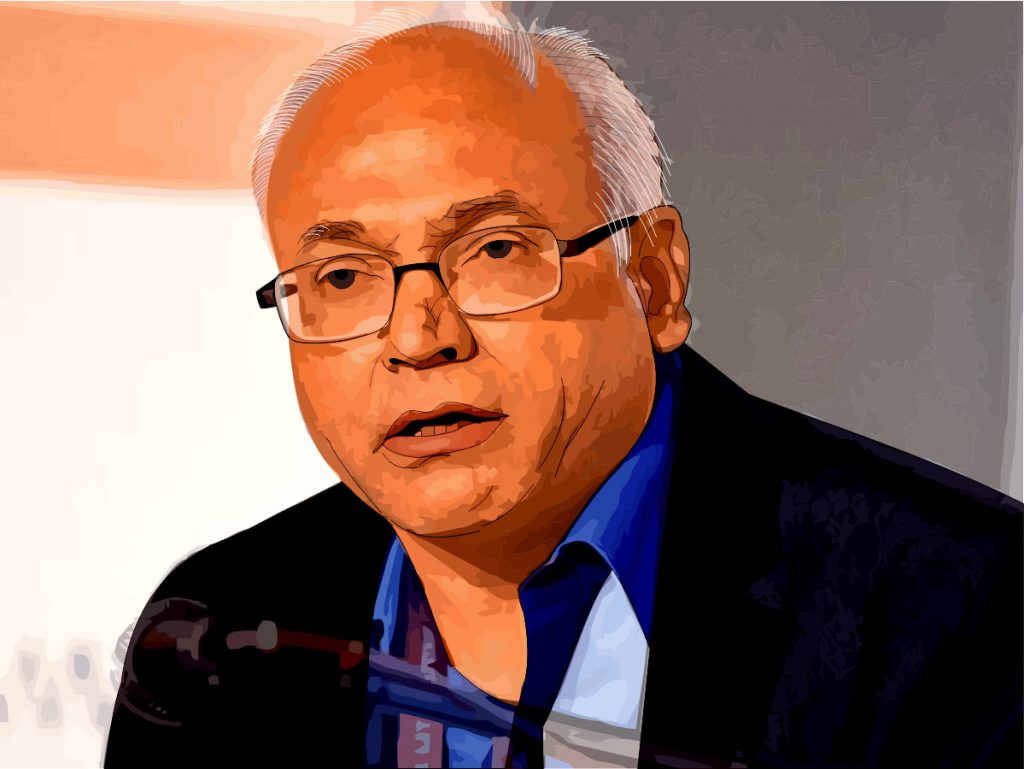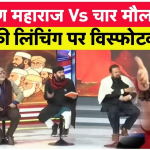
‘Lower’ Castes Original Producers of Knowledge, ‘Upper’ Castes Simply Accumulated Wealth: Kancha Ilaiah
01, Nov 2017 | Deborah Grey
Author, political theorist and Dalit rights activist Kancha Ilaiah Shepherd was recently placed under house arrest in Hyderabad and prevented from attending a rally in Vijaywada. The scholar who is also Director for the Center for the Study of Social Exclusion and Inclusive Policy at the Maulana Azad National Urdu University was receiving death threats even since the Telugu translation of his book Post-Hindu India was published. In an exclusive interview to CJP, Shepherd tells us why we need to change the way we look at the caste system.
One cannot deny that people belonging to certain castes in India have historically enjoyed greater privilege than others. However, it is these people who are the most uncomfortable with even talking about the caste system. “Historically high-end communities are the most caste conscious people,” says Kancha Ilaiah Shepherd matter of factly. “However, they don’t like having a public discourse on caste. The ‘lower’ castes have always demanded such discourse, so they can fight against oppression and bondage,” he explains.
Ilaiah questions the concept of meritocracy as proposed by the so called ‘upper’ castes. “The farmer who uses his knowledge to make land produce food, the potter who uses his skills to give shape to wet earth, the craftsmen who forge metal… how can you claim that they or their descendants lack knowledge or merit,” he asks. “Merit is currently being defined by caste and used as an excuse to perpetuate exclusion in institutes of learning and subsequently in the job market,” he says. “This form of exclusion is not new. For centuries Sanskrit that was the language of higher learning was only taught to Brahmins, thereby preventing others from gaining knowledge in order to improve their socio-economic standing,” he explains.
Ilaiah proposes we reorient our view of caste. “Instead of the merit vs non-merit dichotomy, we should recognise the productive vs non-productive dichotomy in our caste system,” says Ilaiah. “Historically it was the ‘lower’ castes who produced everything from food crops and tools to metal-ware, clothes and shoes. It was the artisans and carpenters, the people who engaged in cattle rearing and tribals who harnessed forest produce who have always been the backbone of the economy,” asserts Ilaiah. “However, it was the upper castes that accumulated wealth because of their higher social standing that gave them power over the lives, labour and resources of the lower castes. This is how they engaged in social smuggling,” he says explaining the origin of the contentious term that is the cause of most threats to his life today.
Ilaiah received flak for using the term “social smugglers” to describe the Arya Vysyas community. He not only received death threats, he was also dragged to court with a Public Interest Litigation filed demanding that his book be banned. However, the Supreme Court dismissed the PIL. Ilaiah feels that there has been an increase in the clampdown on the intellectual environment under the present dispensation. “They are against the very idea of freedom of expression. What’s worse is that they act against dissenters by labelling them as anti-national. But isn’t denying the people who are responsible for creating a bulk of the nation’s wealth their rights by questioning their merit the real anti-national agenda,” he asks.
But Ilaiah is more interested in finding solutions rather than pointing fingers. “All these big corporates build schools under their corporate social responsibility initiatives. But how many of these schools are built in Dalit or tribal areas,” he asks. Ilaiah believes we need more schools in these areas, especially to help these children become comfortable with English language as it acts as a major stepping stone to better career prospects and gives them a more even platform.
Ilaiah also makes an impassioned appeal for reservations for jobs in the private sector. “Most people look at reservations as unnecessary hand-outs. But had it not been for reservation, I would not have acquired higher education. Also, there are cliques not just in institutes of higher learning, but also in the private sector job market. These exclusive networks ensure that only upper caste people find jobs. Dalits, adivasis and members of backward castes find it difficult because they don’t have any contacts,” he explains. “Look at our media houses. When was the last time you say a Dalit or Adivasi anchor,” he asks. “One of the reasons that there aren’t enough stories about lower castes is because people from backward communities are missing from our newsrooms,” he asserts making a case for a more inclusive employment policy that ensures that the talent pool remains diverse and everyone has an equal chance.
Feature image by Amir Rizvi









